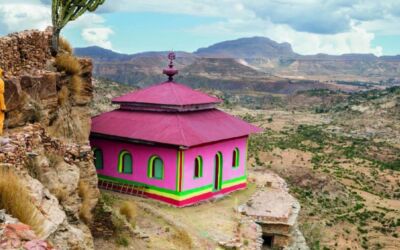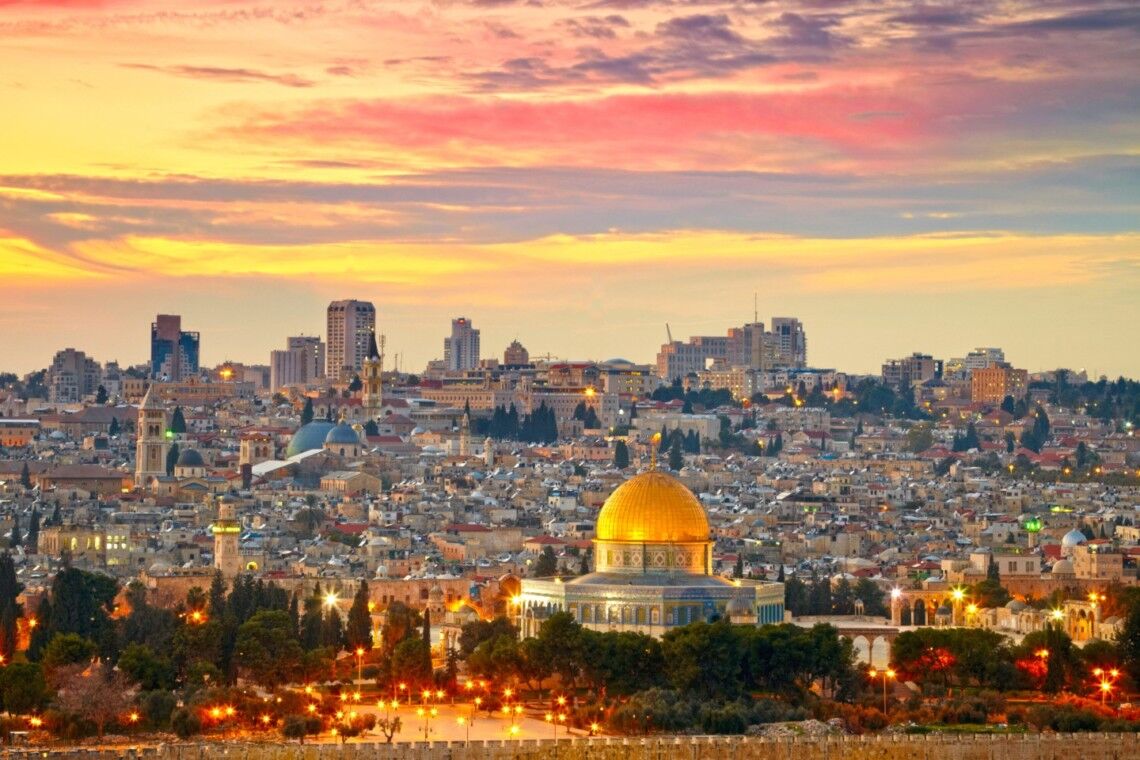
Destination Spotlight: on why Christians should visit Jerusalem
It was on my third visit to the Holy Land that I learned why Christians travel to Jerusalem. In March, 1974, I was asked to escort Rev. Kash Amburgy from South Lebanon, Ohio to Israel. The good Reverend was not only a preacher, but he was also an entrepreneur who built over 350 homes. He owned a furniture business (Kash’s Big Bargain Barn), was a radio evangelist, and led over 100 tours to the Holy Land as well. His motto for the furniture business was, “Save cash with Kash”. He opened his radio broadcasts saying, “This is Reverend Amburgy, your country preacher, and we are here to praise Jesus.” Mr. Raymond Masillo, our senior vice president, worked with Rev. Amburgy on 16th century illustration of the Church of Holy Sepulchre his annual pilgrimages that averaged between 40 and 250 passengers, until he passed away in 2005. To quote Rev. Amburgy, “Traveling annually to Jerusalem recharges my pastoral batteries.”
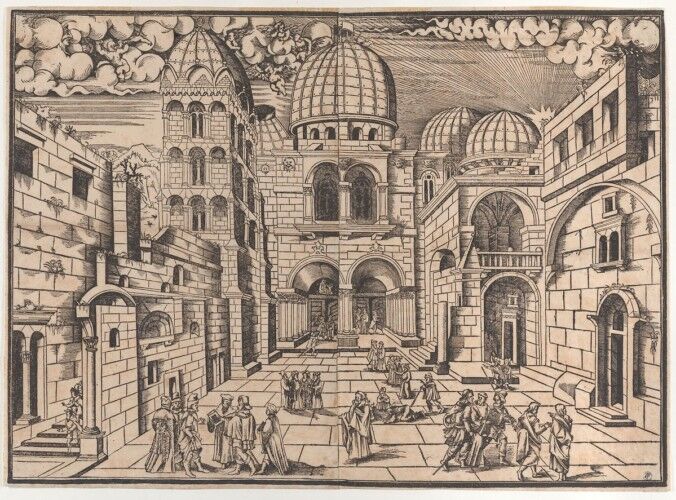
Our group was at the Garden Tomb, and since we were such a large group, we were able to secure the site for a private worship service. First the guide gave us the tour, and then the communion service began. During Rev. Amburgy’s sermon, some of the passengers started speaking in tongues. Others joined in, until the sound level grew louder and louder. Everyone seemed to feel the spirit except General White, the person in charge of the Garden that day. He came to me and said, “Nicholas, you must stop this!” I looked around. All of our Pilgrims were very involved with the Holy Spirit, praising God and speaking in tongues. There was no way I was going to interrupt. Turning to him, I said, “General White, I don’t have the power to stop this, but you can try.” General White looked around, paused, and said, “Nicholas, you are right; we will wait for the power of God to settle them.” Eventually, the people grew quieter, the service continued, and communion was shared. It was here, at this point, on this day, that I realized Jerusalem’s importance to Christians. Whether the Garden Tomb or the Holy Sepulchre is the exact spot, Jerusalem, itself, is the place where Jesus, our Lord, ministered, and most importantly, suffered for us, died and rose again.
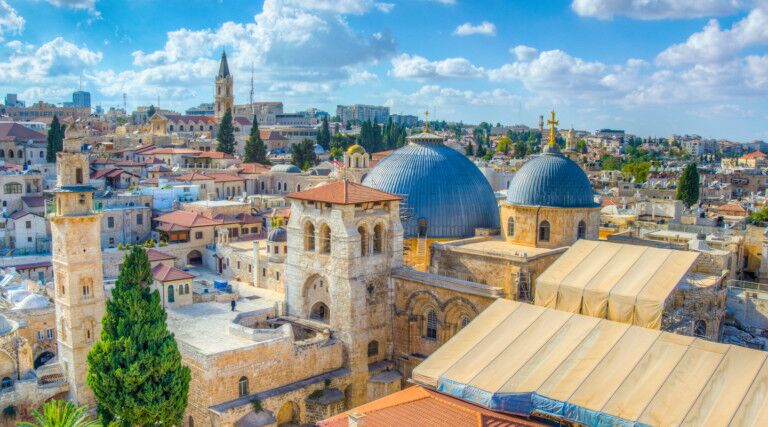
The significance of Jerusalem to Christians cannot be separated from the significance of Jerusalem to the Jewish people. We are intertwined through our scriptures and spiritual bonds and we share this heritage in Jerusalem as our spiritual capital while Israel also claims it as her national capital. Christians for almost two thousand years have made pilgrimages to Jerusalem, to deepen their faith, to encounter the Holy Spirit in the places where Jesus preached and taught, suffered, died, and rose again. When the Church was born on Pentecost so many years ago, the Holy Spirit appeared to Peter and the disciples, giving them the ability to speak in other languages. They began to gather a crowd, preaching to each in his own language.
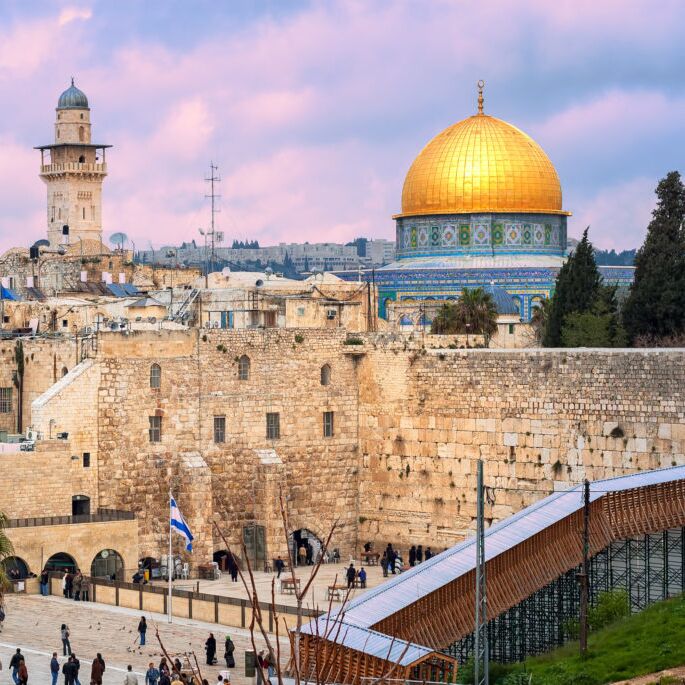
Nicholas Mancino has been serving the church through travel for over 50 years, having begun his ministry in travel in the 1960s. He is the cofounder and president of Journeys Unlimited, where he’s helped thousands of fellow Christians encounter the Spirit and bask in Christian fellowship while traveling to the Holy Land and beyond. You can reach Nick with your inquiries by email at nmancino@groupist.com or at 800-486-8359
Related Posts
Video: The Road to Jerusalem
In the holy land, where every stone has a story to tell, we take a break on the road to Jerusalem and explore what daily life in the time of Christ was like:
Video: explore the immense cultural riches of Ethiopia
The rock-hewn churches of Lalibela; St. Mary’s church where the Ark of the Covenant is believed to lie; the castles of Gondar; the monasteries of Bahir Dar; these few highlights barely scratch the surface of the immense hidden treasure trove waiting to be explore.
The Miracle at Cana
The area around the Sea of Galilee is rich in biblical sites. One site that no visitor should miss is Cana.
Ageless Ethiopia
Though it may not be considered a wealthy nation by economic standards, Ethiopia is a land immensely rich culture and heritage. The country is old beyond imagination, home of “Lucy” the 3 million years old human ancestor, but it also offers modern conveniences for visitors.


